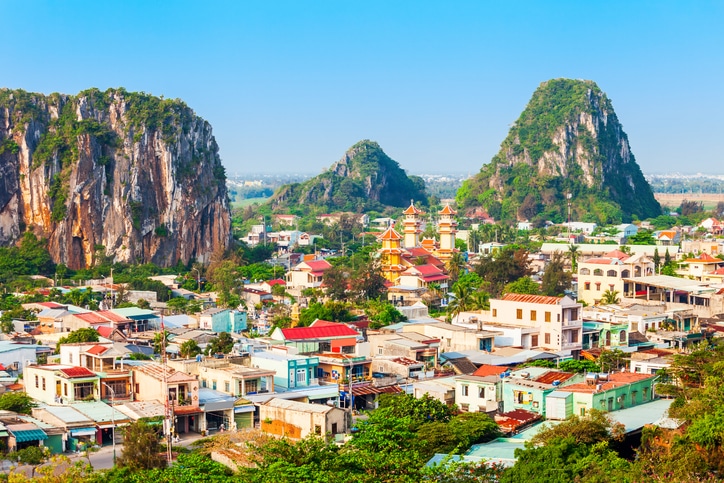Source: Vietnam Briefing —
Vietnam’s real estate market has fallen on hard times with sales down, capital scarce, and many projects slowing to a halt. But it’s not all doom and gloom with foreign investors well poised to benefit from the current downturn. In this article, we will explore what led to these challenges, how they came about, and where foreign firms can find opportunities in the market.
In the decade or so to 2019, Vietnam’s real estate market experienced rapid growth. Buildings could not go up fast enough as the middle class rode a wave of economic development out of the countryside and into apartments in the cities.
Accommodating all these new home buyers, however, took vast sums of capital. Real estate firms were borrowing from banks hand over fist and issuing hundreds of thousands of millions of dollars’ worth of bonds to satisfy the surging demand.
But then COVID-19 happened, and Vietnam’s home buyers changed from bulls to bears. This led to a downturn in home sales and a number of real estate companies, that were overleveraged to begin with, found themselves short of cash and unable to borrow more.
Facing a liquidity crisis, many of these firms turned to Vietnam’s bond market. This led to a huge jump in bond issuances. In 2020, Vietnam’s local currency corporate bonds were worth US$12 billion. By the end of 2021, however, that figure had more than doubled to US$26 billion, the bulk of which were connected to the real estate market.
This successful rewiring of financing Vietnam’s real estate sector, however, was to be short lived. North of the border, China’s second biggest property developer was holding onto what the Vietnamese press would dub a ‘debt bomb’ (or perhaps a ‘hand-Evergrande’), that was about to wreak havoc on global markets, including in Vietnam.
Spotlight finds real estate market after Evergrande default
When Evergrande defaulted at the end of 2021, it rippled through global markets. The damage the collapse of a company with almost US$300 billion dollars’ worth of liabilities could do, was lost on very few in Vietnam.
Politically, economically, and structurally very similar to its neighbor to the north, consumers, investors, and regulators in Vietnam began asking the question: Could this happen here?
Consumer and investor sentiment nosedived and the Vietnam real estate sector found itself under increased scrutiny as regulators worked to isolate and rectify systemic issues.
This was, however, all kicking off as Vietnam was emerging from prolonged lockdowns brought on by the COVID-19 pandemic. For the most part, the worst of the pandemic had passed and vaccination rates were high. On a macro level, discussion had shifted from prevention to control – reopening the borders had risen up the agenda and soon a full economic recovery was expected to begin.
But then, of course, Russia and Ukraine went to war.
War pushes currency controls into the mix
Rampant inflation in two of Vietnam’s key export markets, the European Union and the United States, as a result of the war in Eastern Europe, posed a problem for Vietnam on more fronts than one.
On one hand, rising inflation led to consumers in these foreign markets tightening their belts. In Vietnam, this meant orders of manufactured goods, particularly in garments and textiles, began to drop off.
For context, the US and the EU, in 2022, accounted for US$76 billion and US$109 billion, respectively, or US$185 billion combined, of Vietnam’s total exports of US$371.3 billion – almost 50 percent.
In this light, a small drop off in orders had the potential to have far reaching implications for Vietnam’s economy – several manufacturers implemented layoffs to survive the downturn.
But the more important development was that both the European Central Bank and the United States Federal Reserve moved to raise interest rates to curb inflation. This strengthened both the Euro and the US dollar, putting downward pressure on the local currency.
This was a critical development. The Vietnamese dong is a heavily managed currency and Vietnam’s central bank, the State Bank of Vietnam (SBV), works hard to keep the currency stable against the greenback. It does this through a number of mechanisms, including buying and selling its foreign reserves, regulating credit growth, and, of course, raising or lowering interest rates as needed.
Fortunately, for Vietnam’s real estate sector, at the beginning of 2022, Vietnam’s foreign reserves were upwards of US$109 billion, according to World Bank estimates. This was well above the recommended three months’ worth of imports and meant that the SBV could avoid raising interest rates for some time, maybe even altogether.
A tycoon is arrested, interest rates rise












